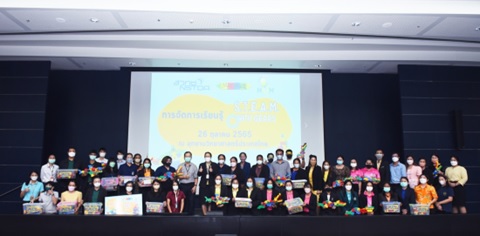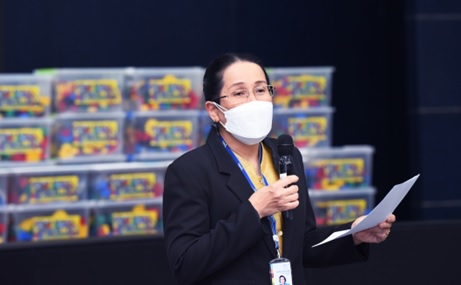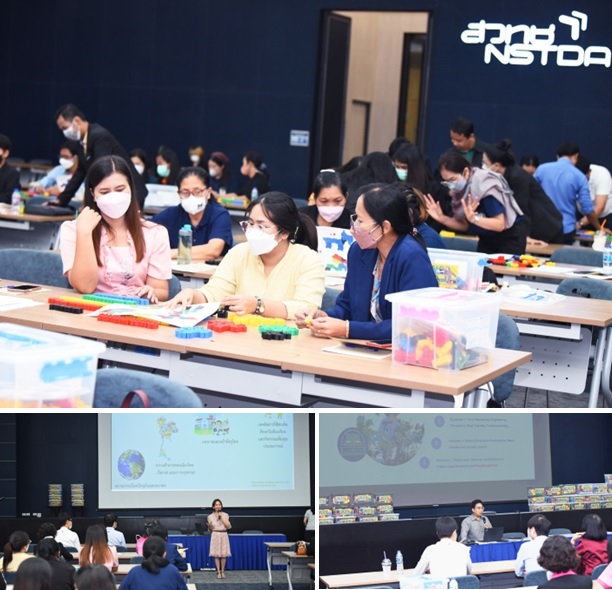On 26 October 2022, NSTDA organized STEAM with GEARS to promote the use of STEAM toy called Gearphun. The event aimed at training primary school teachers on STEAM education using Gearphun. 120 sets of Gearphun provided by ThinkPlay, the manufacturer of Gearphun, were presented to 15 schools.

STEAM education is an interdisciplinary educational approach that combines science, technology, engineering, the arts and mathematics. The approach fosters critical thinking and problem-solving skills that encourage innovation, and therefore is considered essential to the future of the national development.

NSTDA Executive Vice President Dr. Chularat Tanprasert said that one of NSTDA’s mission areas is to employ knowledge in science, technology and innovation to design STEAM education tools and toys. NSTDA then works with manufacturers and distributors to bring the products to market as well as with schools to utilize the products to promote learning process, ensuring that the innovation make a real impact to the society and economy. Furthermore, various activities have been organized to promote STEAM education from kindergarten to high school levels, including science camps for students and science camps for teachers and instructors.
Over the years, the agency has received multiple awards for its educational tools, added Dr. Chularat. The Xvolution board game by NSTDA was among the finalists for the 2015 ALPSP Awards for Innovation in Publishing, presented by the Association of Learned and Professional Society Publishers based in the UK. MuEye, a self-attached-flexible-polymer len that turns a smartphone or a tablet into a personal microscope, was honored with an innovation award in 2019 by the Development and Promotion of Science and Technology Talents Project.

The program also included a talk on STEM education given by Dr. Ruetai Chongsrid, Senior Director of Academic, Curriculum and Learning Media Development Division, and a presentation on gears in everyday life by Dr. Pattarapong Choopanya of MTEC Engineering Design and Computation Research Group.
